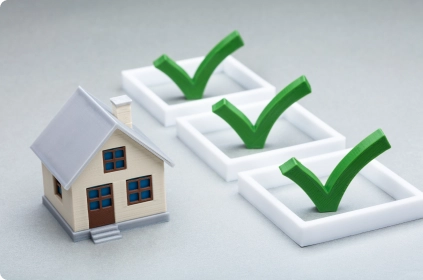How Much Do You Need To Earn To Buy A House?*
Here is the difference between how much the average home costs and what most people can afford, broken down by capital cities.
Home Affordability By Capital Cities*
| Capital City | Median Property Prices | 20% Deposit | Monthly Repayment | Annual Gross Income | Annual Gross Income To Avoid Mortgage Stress | Difference |
|---|---|---|---|---|---|---|
| Sydney | $1,180,463 | $236,093 | $5,662 | $72,124 | $226,480 | $154,356 |
| Melbourne | $776,044 | $155,209 | $3,722 | $72,800 | $148,880 | $76,080 |
| Brisbane | $875,040 | $175,008 | $4,197 | $70,200 | $167,880 | $97,680 |
| Adelaide | $790,789 | $158,158 | $3,793 | $65,000 | $151,720 | $86,720 |
| Perth | $785,250 | $157,050 | $3,766 | $62,400 | $150,640 | $88,240 |
| Hobart | $655,114 | $131,023 | $3,142 | $62,816 | $125,680 | $62,864 |
| Darwin | $504,367 | $100,873 | $2,419 | $78,000 | $96,760 | $18,760 |
| Canberra | $845,875 | $169,175 | $4,057 | $87,776 | $162,280 | $74,504 |
(*Property prices are from CoreLogic’s August 2024 figures. Annual gross income is based on ABS average weekly earnings for August 2024. Annual gross income to avoid mortgage stress is calculated by annualising repayment and dividing the result by 0.3. Repayment calculations are based on a 6% interest for an 80% LVR loan with a 30-year term. )

Make Informed Decisions With The 360° Home Loan Assessor
- Determine how much you can contribute as a deposit
- Get clarity on the total costs of buying a home
- Explore interest-rate options based on your situation
Can I Afford To Buy A House?
While your total income is one factor lenders will consider when assessing how much you can borrow, another key factor is your debt-to-income ratio. The maximum amount you can borrow is based on your income, current debts, and ability to repay the loan amount.
Your Debt-To-Income (DTI) Ratio
The DTI ratio is a key metric lenders use to determine if you can pay off your home loan comfortably without getting into financial hardships and mortgage stress.
It is calculated as the amount of money you earn divided by your total debts and liabilities.
As a simple example, let’s assume the total household income of a couple is $150,000. Assume they are looking at an $850,000 property and they’ve saved a 20% deposit ($170,000), so they need a loan for $680,000. Their total debts and liabilities beforehand are $10,000. So, adding that to the amount of the loan, their total debt would become $690,000. When we divide their total debt by their income, we get a DTI ratio of 4.60.
This means their total debt is 4.6 times their combined income.
You can use our DTI ratio calculator to check your own DTI based on any loan amount.
Tip: A DTI of 6 is usually considered high. Fortunately, lenders have different policies on what is an acceptable DTI ratio. Some lenders can accept borrowers with a DTI ratio up to 9. Our mortgage brokers know which lenders accept higher DTI limits. Call us on 1300 889 743 or enquire online.
Evidence Of Income
You will need to provide sufficient evidence of the income you’re earning. The specific types of income banks accept vary, but the important thing is that they look for a consistent income source. For example, if you’ve only received one bonus throughout your career, then the lender will not consider that part of your income.
Your income plays a crucial role in determining how much house you can afford.
Other Financial Considerations
The amount of deposit you’ve saved, your credit score and your repayment history are also assessed by lenders. A low credit score is a major concern for lenders, and if you miss payments frequently, that’s a red flag.
Costs Of Buying And Owning A House
Your mortgage repayments are not the only costs associated with buying and owning a home. There are upfront costs like stamp duty, building and pest inspections, and mortgage fees. You also have to consider the ongoing costs of owning a home, like insurance, water rates, council rates, and repairs and maintenance.
Do not forget to budget for these upfront and ongoing expenses when buying a home.
What Percentage Of Salary Should I Put Towards The Mortgage?
If you spend too much of your salary on your mortgage payments, then you won’t have much to save. This means a smaller financial buffer to use in case of emergencies, like medical expenses and job loss.
Mortgage stress is when you pay more than 30% of your income (before tax) on mortgage repayments. Lenders want to make sure you can comfortably repay your home loan along with your other liabilities without getting into financial hardship.
Tip: To be on the safe side and stay below the 30% mortgage stress threshold, adhere to the 28% limit. Your monthly mortgage repayments should not exceed 28% of your gross monthly income.
For example:
| Weekly income | Monthly Income | 28% | 30% |
|---|---|---|---|
| $1,714 | $6,856 | $1,919 | $2,057 |
How Do I Get A Home Loan Approved With My Income?
Prove To The Lender You Can Make Repayments
Demonstrate to the lender that you have a good grasp of your financial situation.
- Find a home loan with a lower interest rate, so your repayments will be lower.
- Do not look for properties that are outside of your borrowing power.
- Demonstrate that you have good saving habits by increasing the size of your deposit and genuine savings.
- Cut your expenses, including buy now, pay later debt.
Improve Your Credit Score
A bad credit home loan will have a higher interest rate than a standard home loan. A good credit score improves your chances of approval. If your credit score is low, try to improve it before you apply for a home loan. Do not apply for more credit in the lead-up to getting a home loan.
Buy What You Can Afford
It can be tempting to buy in the most popular areas. However, property prices for these suburbs are too high for most. Expand your search towards outer suburbs or even regional areas if capital cities are too expensive.
Get pre-approved for a home loan, so you’ll know what you can afford.
Buy With A Small Deposit
Even if you have not saved up a 20% deposit, you can still get approved for a home loan. In most cases, you have to pay Lenders Mortgage Insurance (LMI) if your deposit is less than 20%. However, there are circumstances where you don’t need to pay LMI at all. Going for low-deposit home loans is a great option to enter the property market now, instead of waiting for property prices to fall.
Look Beyond Traditional Banks
Remember, the home loan products of major banks(ANZ, Commonwealth Bank, National Australia Bank and Westpac) tend to have strict lending criteria. Other lenders can help if you have a low credit score, are self-employed, or earning income in a foreign currency.
Tip: Take the help of a mortgage broker who has a wide range of lenders on their panel. A mortgage broker will help you get approved for the right home loan from the right lender.
It’s important to note that your income is not the only factor that determines if you get approved for a home loan.
Your deposit, credit score, etc are also assessed. Do not forget the costs involved when buying a home. At Home Loan Experts, our mortgage brokers are here to help every step of the way. Call us on 1300 889 743 or enquire online.
